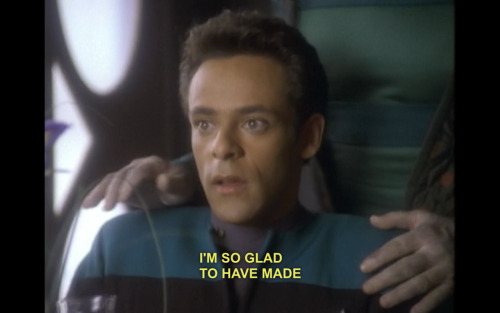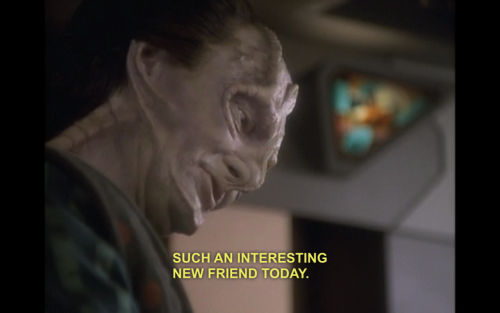"You won't guess who's back. G---."
"WHAT?!"
"Apparently they let her out of the mental institution."
Teachers, when alone, talk mostly about students-- especially the rambunctious kids with multiple suspensions or family troubles. A lot of the time, these conversations involve a combination of head-shaking, advice, and emotional support. ("Don't even call his mom; she doesn't care. Go straight to his auntie." "Try putting her in the front row." "Could be worse. He punched someone in my class.") I often indulge in these sorts of conversations. When the chatting veers toward cruelty ("I swear I think that kid breathes through his butt"), I try to change the subject.
In this instance, the young lady in question sounds like the brand-new transfer to my English class. I pause beside the door and verify this,
"You mean B--- G---? She's in my class now."
"Well look out,"
"She went away for a few years and came back?"
"Yes, to institutions, but she won't tell you that. She's crazy."
"She's very well-behaved in my class. I like her. She takes a lot of notes. Is there something I should know?"
"Watch out. She is super volatile. Her family is MESSED up."
"Why don't you do me a favor and take a flying fuck at a rolling donut?" I don't say.
Moments like these I recall that my heart is always with the students instead of the teachers. Moments like these I recall that I went into teaching not because I loved my own instructors but because I hated them. Moments like these I recall how my father was suicidal and institutionalized in his mid-twenties and how I myself rode in the back of a police car to be evaluated at a mental healthcare facility.
"Major depressive disorder, recurrent," and "uncomplicated bereavement" are the diagnoses my therapist recently gave me.
The same teacher rolling her eyes about B--- G--- has told coworkers that I am crazy. She is, incidentally, my supervisor.
I often can't sleep; I dream of my dead father rising like Frankenstein's monster and wake up breathless. I dream of bedbugs crawling on my face. I panic about being homeless again. Sometimes, I trace the parallels between Grendel and my murderer brother and accidentally share my thoughts with my students. They have, time and again, accepted me exactly as I am. My teachers did not.
Teaching can be intensely stressful. Meeting after meeting, endless paperwork, pressure to prepare students for ridiculous standardized tests, budget cuts, new laws passed by pedants with no pedagogical experience. But every day I drag myself to the shower at six a.m. anyway.
I do not get out of bed for my supervisor. I get out of bed for B---, who sits in my room, highlighting Beowulf in pink, the afternoon sun a thick yellow against her caramel skin and freckles.
The Laziest Ninja
Saturday, January 31, 2015
Wednesday, July 31, 2013
Garak: Living in the Subtext
My appreciation of Star Trek manifested at the same time as my appreciation of coffee.


After a night of doing graduate coursework, my significant other handed me a cup of pale coffee and turned on "Encounter at Farpoint." I loved the sugar, I loved the cream, and I loved Jean-Luc Picard. Watching Star Trek: The Next Generation, I remembered why I connected with the genre: futuristic depictions of aliens and technology allow science fiction to deconstruct what it means to be human. A journey through space is really a journey through moral dilemmas.
Being non-heterosexual, I was disappointed to learn that Gene Roddenberry's vision of a Utopian future did not address gay rights. However, this summer I watched the entirety of Star Trek: Deep Space Nine, and there were quite a few characters that I enjoyed as a queer viewer, most notably Garak.
The first time we encounter Garak is from the perspective of genius Dr. Julian Bashir. Their conversation is halting and awkward; Julian brushes a flower from his face and attempts to order tea for Garak. At one point he implies Garak is a spy.
Garak (slowly): Doctor, you're not intimating that I'm some sort of spy, are you?
Julian: I wouldn't know, sir.
Garak: Ah, an open mind: the essence of intellect. [pause] As you may also know, I have a clothing shop nearby. So if you should require any apparel, or simply wish, as I do, for a bit of enjoyable company now and then, I'm at your disposal, Doctor.
Garak's lines are filled with knowing pauses, and in these pauses a queer interpretation blossoms and ultimately colors all the character's future scenes. This reading is also strengthened by actor Andrew Robinson's charming delivery. Suddenly, "spy" and "enjoyable company" become euphemisms. By the time Garak leaves, his hands lingering on Julian's shoulders and clearly discomfiting the doctor, I am at the point of tears.


"What's so funny?" my significant other asks as I start laughing halfway through the scene.
"He's so gay! This is wonderful!" After that moment, my SO can not see past the innuendo, either, especially when Julian rushes to the bridge to tell his fellow officers about his encounter. The scene's comedy is heightened by the crew's nonchalant reactions.
Julian: You won't believe who just sat down next to me in the replimat!
O'Brien (to Kira): Major, upper pylon three will be shut down for maintenance for forty-eight hours.
Julian: The spy! Garak, the Cardassian!
Sisko: We don't know for a fact Garak's a spy, Doctor.
Julian: He is. You should have heard him. He-- he introduced himself. And-- and-- and he struck up conversation just like that. He was making contact with me-- with me, of all people!
Dax: What do you think he might want from you, Julian?
Sisko chuckles, and O'Brien rolls his eyes. Meanwhile, I feel as though Julian is a mirror of myself, trying to explain to his friends how he instinctively read Garak as a spy just like I instinctively read him as queer.
A little research confirmed that my reading is indeed founded on the actor's intention. Andrew Robinson has said that when performing as Garak he tried to portray the Cardassian as "omnisexual" but backed off after the first encounter with Julian "gave people fits." Robinson also said, "The important thing about Garak is that he lives in the subtext. Again, with the iceberg analogy, the substance of Garak is what you don't hear. It's what he doesn't say." As many queer viewers can confirm, to look for representation in media we must often look to the subtext. This makes Garak, the "simple tailor" in exile for unspoken reasons (like maybe queerness), an unexpected but pleasant surprise in the heteronormative world of Roddenberry. Delightfully, the exploration of queerness in Star Trek: Deep Space Nine does not stop with Garak, which makes the series uniquely enjoyable for me.
There's also this:
For those of you keeping score, Garak just told Julian to eat a rod, and Julian just gave him chocolates.
[additional information on Garak pulled from Memory Alpha and IMDb]
Subscribe to:
Posts (Atom)